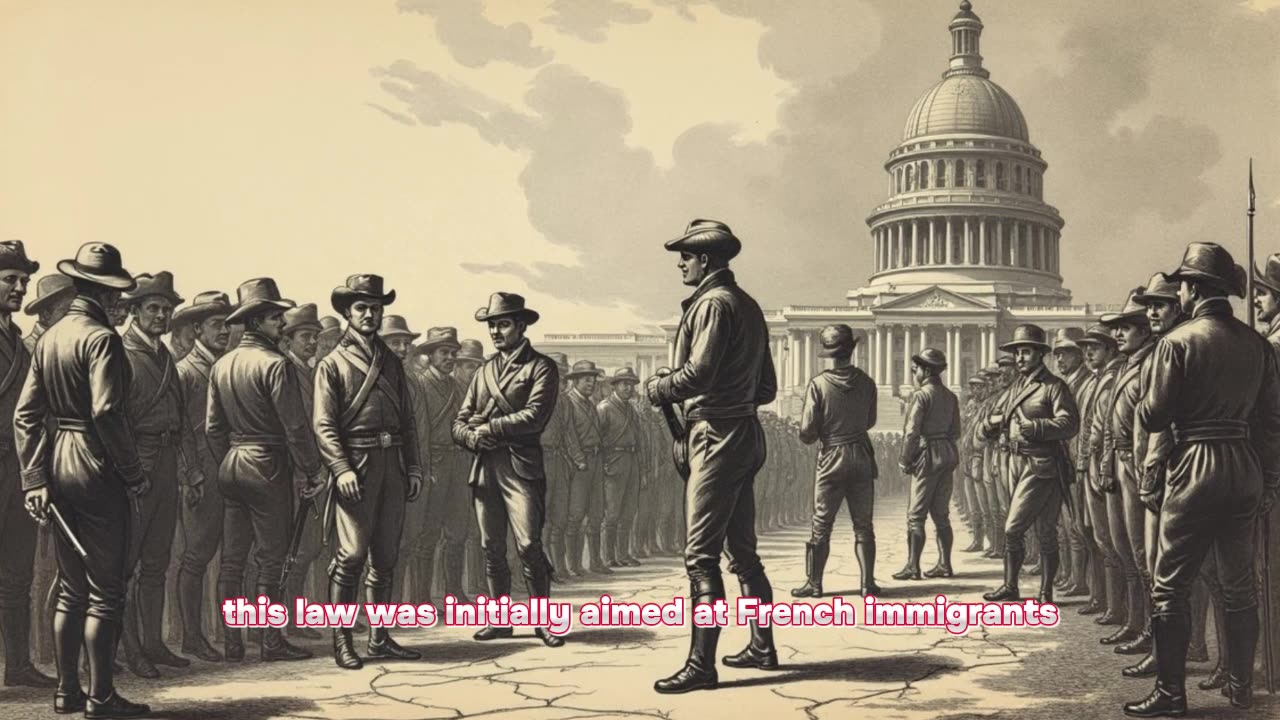Premium Only Content

What is Alien Enemy 1798?
"Alien Enemy 1798" is not a widely known historical event, book, movie, or game. However, the phrase might refer to laws or actions taken against foreign enemies in 1798, particularly the Alien Enemies Act of 1798, which was part of the Alien and Sedition Acts passed by the U.S. Congress under President John Adams.
The Alien Enemies Act allowed the U.S. government to deport or detain non-citizens from countries with which the U.S. was at war. This law was initially aimed at French immigrants during a period of rising tensions between the U.S. and France.
President Donald Trump recently invoked the Alien Enemies Act of 1798 to deport individuals associated with the Venezuelan gang Tren de Aragua. This act grants the president authority to detain and remove non-citizens from hostile nations during wartime. Historically, it was used during conflicts like World War II.
Trump's administration labeled Tren de Aragua as an invading force, equating their activities to acts of war. This unprecedented move allowed for the expedited deportation of alleged gang members without standard judicial proceedings.
However, a federal judge issued a temporary halt to these deportations, questioning the application of a wartime law in this context. Despite the court order, some deportations proceeded, leading to legal challenges and debates about executive authority and due process.
Critics argue that using the Alien Enemies Act in this manner circumvents established legal protections and sets a concerning precedent. Supporters believe it's a necessary measure to address severe threats posed by violent gangs.
Recently, French politician Raphaël Glucksmann called for the United States to return the Statue of Liberty to France. He argued that America's current political stance under President Trump contradicts the values the statue represents, suggesting that the U.S. has "chosen to side with the tyrants" and "despises" the statue's symbolism.
In response, White House Press Secretary Karoline Leavitt firmly rejected the proposal, emphasizing America's role in liberating France during World War II and stating that France should be grateful to the United States.
It is important to note that Glucksmann's views do not reflect the official stance of the French government. The Statue of Liberty, gifted by France in 1886, remains a symbol of the enduring friendship between the two nations.
-
 17:40
17:40
Actual Justice Warrior
1 day agoBlack Mob ATTACKS Conservatives On Campus
68.3K128 -
 2:04:41
2:04:41
MG Show
21 hours agoJames 'Dirty Cop' Comey Indicted; A Plan to Starve the American People
44.7K19 -
 9:11
9:11
MattMorseTV
17 hours ago $18.75 earnedVance just DROPPED the HAMMER.
135K64 -
 10:16
10:16
GritsGG
17 hours agoBEST Controller Settings for Warzone! Rank 1 Player's Settings!
23.8K2 -
 2:13:30
2:13:30
Side Scrollers Podcast
22 hours agoUK Introduces MANDATORY Digital ID + Dallas ICE Shooting BLAMED on Gaming + More | Side Scrollers
149K22 -
 10:34
10:34
The Pascal Show
17 hours ago $6.40 earnedFOOTAGE REVEALED! Images Of Celeste Rivas Exposed Before Her Disappearance From Home Running To D4vd
30.6K3 -
 LIVE
LIVE
Lofi Girl
2 years agoSynthwave Radio 🌌 - beats to chill/game to
345 watching -
 4:23:47
4:23:47
MissesMaam
12 hours ago*Spicy* Friend Friday with Mally_Mouse and Friends!! 💚✨
317K19 -
 2:05:09
2:05:09
TimcastIRL
13 hours agoRIOTS Leftist ATTACK ICE, Tear Gas Deployed, Feds Ordered To IGNORE CA Law, CIVIL WAR! | Timcast IRL
356K316 -
 15:57
15:57
Robbi On The Record
1 day ago $9.57 earnedTranshumanism: Are Humans Becoming Obsolete? Neuralink & CRISPR explained
62.8K24